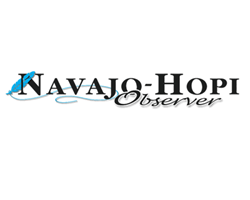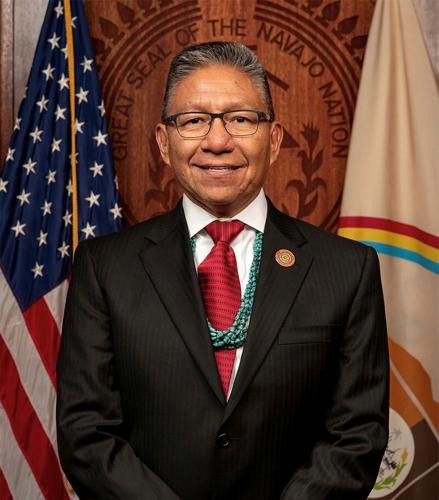Myron Lizer Defends Coal's Future: Domestic Production is Going to Ramp Up

April 17, 2025 - Myron Lizer, former vice president for the Navajo Nation, defended the coal industry’s potential in an interview with the Navajo-Hopi Observer on April 11, predicting that domestic production will increase despite logistical hurdles.
"We (Navajo Nation) own four coal mines, and we’re looking at developing ports that would help us deliver coal not only locally or domestically, but nationally,” Lizer said. “There’s a lot of opportunity right now that we have to seize while we can.”
Throughout his career, Lizer has gained valuable experience in coal production and remains actively engaged with current developments. He believes the Navajo Nation will be a key player by developing new technologies and forming strategic partnerships.

Myron Lizer, former vice president for the Navajo Nation.
Courtesy photo
“Our (Navajo Nation) coal is highly sought because of its Btu, its cleanliness, low phosphorus count and high moisture content. We cater our coal to what our client is looking for,” he said. “There's this opportunity right now that I see, domestic coal production is going to ramp up, the market's going to push it and drive it up. It will become more profitable for domestic coal deliveries, and that's what we all want.”
He acknowledged challenges in reopening mines such as Arizona’s Black Mesa because of cost and logistics. “It’s going to take a gargantuan effort to bring all the equipment out to open it up. It might be 5 to 10 years when and if that happens,” he said, referring to successes of the currently active Navajo-owned mines in New Mexico, Wyoming and Montana that continue to produce coal for profitable markets.
Lizer also criticized negative media narratives, calling them divisive: “They use derogatory comments that create dissension and create disunity and confusion. We need a new narrative around the discussion toward our active mines. We need to study and show ourselves as informed constituents, we can't just accept existing narratives about energy production."
He linked mine closures to community impacts, referencing the closure of Kayenta Mine. “When the Kayenta Mine closed, the nearby communities lost over 300 students almost overnight. Those are hard numbers.”
Despite historical obstacles, he remains optimistic. “As North America’s third-largest coal producer, the Navajo Nation stands to benefit,” he said. “Profitability for domestic deliveries will drive interest.”
Lizer’s vision extends beyond production. He emphasized education, innovation and new applications for mining infrastructure. "For instance, new opportunities could lead to a collaborative demonstration project with the federal government," he noted, highlighting the potential for transformative approaches to energy production.
Lizer is particularly interested in technologies such as carbon capture, carbon sequestration and polysilicon conductor manufacturing, as avenues to revitalize coal – an approach he says aligns with broader tribal economic development goals, especially as the current administration supports fossil fuel industries.
"(President Donald) Trump is going to make Indian Country a lot stronger," he explained. "We're going to go through some bumps and bruises, take on some political battles, but at the end of the day, we're going to be a lot stronger."
Lizer emphasized the need for informed dialogue on coal production and energy. “Education is being weaponized,” he noted. “People need to know the facts, to study and understand the full picture of energy production and its potential.” He advocates for a balanced strategy that embraces innovation, environmental awareness, and economic opportunity to strengthen the Navajo Nation’s role in the energy sector.
“We need to be better negotiators,” Lizer said. “We need to be subject matter experts. It’s about creating win-win opportunities for everyone involved.” His message is direct: the Navajo Nation must take ownership of its future through adaptability, expertise and strategic planning.
But Lizer also points to deeper questions of sovereignty and independence. The tribe’s current economic model, he says, is still too reliant on external approval and oversight. “We say we’re sovereign, but right now we can’t even dig a hole without numerous government agencies authorizing it,” he said.
He sees the coal mines as more than just energy assets. They are tools of empowerment, capable of shifting the tribe from a dependent role to one of control and self-direction. By developing coal-related infrastructure, like export ports, and aligning with new technologies, Lizer believes the Navajo Nation can shift the longstanding paternalistic dynamics between tribal nations and the federal government.
He concluded by reiterating, this is not just a conversation about coal, it’s about control over resources, narratives and the future, and in Lizer’s view, it’s a conversation the Navajo Nation is ready to lead.
Calls to the Navajo Nation leadership for comments were not immediately returned.

